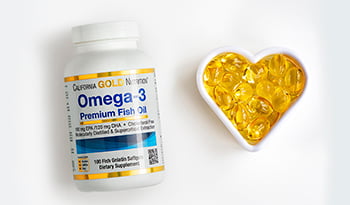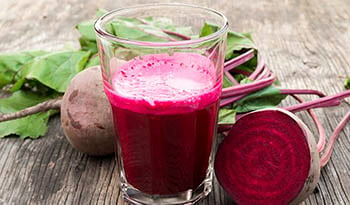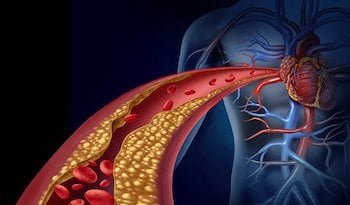Support Heart Health with These 4 Doctor-Approved Habits

Having a healthy heart is the cornerstone for long life. According to the World Health Organization, cardiovascular disease is the leading cause of death worldwide. Approximately 17.9 million people die from cardiovascular disease each year.
Caring for your heart is essential for overall health and longevity. So how do you care for your heart effectively? What heart-healthy habits can support your heart for years to come?
Research suggests that some habits can help support heart health.
The Importance of Heart Health
The heart is one of the most important organs of the body. This small, fist-sized organ’s job is to pump blood, bringing much-needed oxygen and nutrients to all the tissues in the body. The heart is thought to beat over 2 billion times in the average lifespan.
The heart is made out of a specialized muscle tissue called cardiac muscle. Cardiac muscle, unlike skeletal muscle, is involuntary, beating on its own without any need for conscious thought or input.
Although the cardiac muscle is involuntary in that you can’t exercise the heart like you can, say, the biceps, you can still support heart health. Studies show that certain habits may boost and support heart health, including exercise, proper nutrition, stress reduction, and heart-healthy supplements.
1. Exercise
Everyone knows that regular exercise may have multiple benefits for the body, including increasing vitality, improving physical strength and mobility, and better mood.
A regular exercise routine also may have enormous benefits for heart health. Studies show that regular exercise helps to enhance the function of mitochondria (the cell's powerhouse), improve the integrity of arteries, and even release myokines. Myokines are small proteins that may help improve muscle function, including heart muscle.
One study that followed individuals’ life-long exercise patterns found that those who exercised between 764 and 1091 minutes a week found the most significant reduction in developing cardiovascular disease.
Research suggests that a combination of resistance or weight training and aerobic exercises is more beneficial for heart health than aerobic exercise alone.
2. Proper Nutrition
Eating nutrient-dense, heart-healthy foods may help to support heart health. Research shows that some diets may be more beneficial in supporting heart health than others. One of those diets is the Mediterranean diet.
The Mediterranean diet is a diet based on the foods eaten traditionally by people who live in countries bordering the Mediterranean Sea, such as Greece. This diet consists of whole grains, vegetables, nuts, seeds, herbs, spices, olive oil, and fruits. Poultry, dairy, eggs, and fish are eaten in moderation. Red meats, sweets, and processed foods are barely consumed.
One study assigned participants to 1 of 3 diets: Mediterranean with extra olive oil, Mediterranean with extra nuts, or a low-fat diet. The study found that those who followed either of the Mediterranean diets had a lower risk of developing heart disease than those who adhered to the low-fat diet alone.
3. Stress Reduction
Research suggests that there is a link between stress and cardiovascular health. For example, studies have linked the expression of negative thoughts and emotions on Twitter with increased cardiovascular fatalities. Another study listed mental/emotional stress as one of the leading factors in developing cardiovascular disease. Still, another study even linked the Type D personality—one that avoids social situations and tends to worry—to an increased incidence of coronary heart disease.
There’s even a condition down as Takotsubo cardiomyopathy or Broken Heart Syndrome. This condition occurs when the heart muscle becomes weakened unexpectedly and is caused by extreme emotional or physical stress.
Studies suggest that increased mental and emotional stress, even over a short period, increases inflammation in the body, contributing to an increased risk of coronary heart disease.
Mental and emotional stress can contribute to adverse heart health. Reducing stress may be one way to support heart health. Studies on mindfulness-based stress reduction showed a decrease in blood pressure.
4. Using Nutrients to Support Heart Health
Even with the best diet, it may be necessary to support heart health by supplementing with heart-healthy nutrients. This is due to a number of different reasons. For example, modern farming practices don’t allow for the maturation of nutrients in many crops because they are picked and shipped globally before they are ripe. Also, the aging process diminishes the body’s ability to make its own antioxidants like coQ10, which can’t be readily gotten in adequate amounts from the diet.
Supplementing with heart-healthy antioxidants and phytochemicals may help boost heart health.
CoQ10
Co-enzyme Q10, also known as CoQ10, ubiquinol, or ubiquinone, is a body-made antioxidant that helps protect the brain and the heart. With aging, the body doesn’t produce as much CoQ10 as needed, which leads to more significant oxidative stress, or free radical damage in the body.
Studies suggest that CoQ10 is an important antioxidant to support heart health and may have anti-aging properties. For example, one study showed that supplementation with CoQ10 helped decrease both systolic and diastolic blood pressure.
Another randomized, double-blind study involving participants who had high blood pressure and coronary artery disease found that after 8 weeks of CoQ10 supplementation, blood pressure and heart rate decreased, and antioxidants, such as vitamin E, increased in the bloodstream.
Beet Root Extract
Beet root (Beta vulgaris) has been gaining popularity over the past few years because of its potential to improve heart health. Studies suggest that beet root may help support heart health in healthy individuals and those suffering from heart disease.
For example, one comprehensive review found that beet root is classified as 1 of the top 10 plants with the highest amount of antioxidant activity. Beet root may also decrease blood pressure, improve endothelial (the thin membrane that lines the blood vessels) function, and increase nitric oxide in the bloodstream for heart disease patients. Nitric oxide is a powerful vasodilator helping blood vessels to relax and expand, which improves blood flow throughout the body.
Another randomized, placebo-controlled study involving older healthy adults found that beet root juice consumption decreased blood pressure and reduced platelet activation. Platelets are responsible for blood clotting. Reduced platelet activation suggests fewer clots being formed within blood vessels.
Grape Seed Extract
Grape seed (Vitis vinifera) extract comes from the seeds of wine grapes and may be extremely helpful as a support to heart health. One meta-analysis (a study that combines and analyses the results of multiple studies) found that grape seed extract lowered systolic blood pressure and heart rate.
Another randomized study involving 36 individuals with above-average risk for cardiovascular disease found that supplementing with grape seed extract improved endothelial function, increased nitric oxide production, and reduced damage due to free radicals.
Pomegranate Fruit Extract
Pomegranate (Punica granatum) is not only tasty, but it is also filled with rich flavonoids that may help to support heart health. For example, one study found that molecules in pomegranate called polyphenols were able to prevent oxidation of low-density lipoprotein by macrophages.
Low-density lipoprotein, or LDL, is known as bad cholesterol because it can be altered and consumed by the body's immune cells. These altered immune cells then deposit themselves into the walls of arteries, which promotes atherosclerosis and arteriosclerosis, the hardening of the body's blood vessels.
A meta-analysis found that pomegranate extract helped to lower blood pressure in under 12 weeks.
Red Leaf Spinach Extract
Red leaf spinach (Amaranthus tricolor), also called amaranth is a leafy plant found mainly in the Himalayan foothills. Research suggests that red leaf spinach may support a healthy heart.
One animal study showed that red leaf spinach extract protected the from additional damage by reducing oxidative stress, preventing fibrosis (scarring) of the heart tissues, and acting as an anti-inflammatory. This may be due to the high amount of antioxidants contained in red leaf spinach.
Another study involving 15 healthy participants showed that red leaf spinach improved blood flow to the lower limbs and increased nitric oxide in the bloodstream.
Amino Acids
Amino acids are the building blocks of proteins. Muscles, including the heart, are made up of proteins,and amino acids may help support a healthy heart. For example, research shows that supplementing with L-carnitine, an amino acid found throughout the body, reduced oxidative stress, inflammation, and death of heart muscle cells. Another study found that an increased intake of the amino acid, L-arginine was linked to a lower incidence of coronary heart disease and blood pressure.
Takeaway
While supplements can be taken individually, some heart health products combine these nutrients for a powerful synergistic effect.
Choosing heart-healthy habits like regular exercise, proper nutrition, stress reduction, and supplementing with heart-healthy nutrients may help boost the cardiovascular system and keep a healthy heart.
References:
- Bahadoran Z, Mirmiran P, Tahmasebinejad Z, Azizi F. Dietary L-arginine intake and the incidence of coronary heart disease: Tehran lipid and glucose study. Nutr Metab (Lond). 2016;13:23. doi:10.1186/s12986-016-0084-z
- Chauvet-Gelinier JC, Bonin B. Stress, anxiety and depression in heart disease patients: A major challenge for cardiac rehabilitation. Ann Phys Rehabil Med. 2017;60(1):6-12. doi:10.1016/j.rehab.2016.09.002
- Clifton PM. Effect of grape seed extract and quercetin on cardiovascular and endothelial parameters in high-risk subjects. J Biomed Biotechnol. 2004;2004(5):272-278. doi:10.1155/S1110724304403088
- Conversano C, Orrù G, Pozza A, et al. Is mindfulness-based stress reduction effective for people with hypertension? a systematic review and meta-analysis of 30 years of evidence. Int J Environ Res Public Health. 2021;18(6):2882. doi:10.3390/ijerph18062882
- Eichstaedt JC, Schwartz HA, Kern ML, et al. Psychological language on Twitter predicts county-level heart disease mortality. Psychol Sci. 2015;26(2):159-169. doi:10.1177/0956797614557867
- Estruch R, Ros E, Salas-Salvadó J et al. Primary prevention of cardiovascular disease with a Mediterranean diet. New England Journal of Medicine. 2013;368(14):1279-1290. doi:10.1056/nejmoa1200303
- Feringa H, Laskey D, Dickson J, Coleman C. The effect of grape seed extract on cardiovascular risk markers: a meta-analysis of randomized controlled trials. J Am Diet Assoc. 2011;111(8):1173-1181. doi:10.1016/j.jada.2011.05.015
- Fuhrman B, Volkova N, Dornfeld L et al. Pomegranate juice consumption reduces oxidative stress and low density lipoprotein atherogenic modifications: studies in the atherosclerotic apolipoprotein E deficient mice and in humans. Atherosclerosis. 2000;151(1):111. doi:10.1016/s0021-9150(00)80502-x
- Haun CT, Kephart WC, Holland AM, et al. Differential vascular reactivity responses acutely following ingestion of a nitrate rich red spinach extract. Eur J Appl Physiol. 2016;116(11-12):2267-2279. doi:10.1007/s00421-016-3478-8
- Maessen M, Verbeek A, Bakker E, Thompson P, Hopman M, Eijsvogels T. Lifelong exercise patterns and cardiovascular health. Mayo Clin Proc. 2016;91(6):745-754. doi:10.1016/j.mayocp.2016.02.028
- Marzolini S, Oh P, Brooks D. Effect of combined aerobic and resistance training versus aerobic training alone in individuals with coronary artery disease: a meta-analysis. Eur J Prev Cardiol. 2011;19(1):81-94. doi:10.1177/1741826710393197
- Matsutomo T. Potential benefits of garlic and other dietary supplements for the management of hypertension. Exp Ther Med. 2020;19(2):1479-1484. doi:10.3892/etm.2019.8375
- Mattingly, Q. Cardiovascular diseases. World Health Organization. Updated 2022. Accessed October 9, 2022. https://www.who.int./health-topics/cardiovascular-diseases#tab=tab_1.
- Mirmiran, P., Houshialsadat, Z., Gaeini, Z. et al. Functional properties of beetroot (Beta vulgaris) in management of cardio-metabolic diseases. Nutr Metab (Lond) 17, 3 (2020). doi.org/10.1186/s12986-019-0421-0
- Nahar K, Kabir F, Islam P, et al. Cardioprotective effect of Amaranthus tricolor extract in isoprenaline induced myocardial damage in ovariectomized rats. Biomed Pharmacother. 2018;103:1154-1162. doi:10.1016/j.biopha.2018.04.151
- Pinckard K, Baskin K, Stanford K. Effects of exercise to improve cardiovascular health. Front Cardiovasc Med. 2019;6. doi:10.3389/fcvm.2019.00069
- Raubenheimer K, Hickey D, Leveritt M, et al. acute effects of nitrate-rich beetroot juice on blood pressure, hemostasis and vascular inflammation markers in healthy older adults: a randomized, placebo-controlled crossover study. Nutrients. 2017;9(11):1270. doi:10.3390/nu9111270
- Sahebkar A, Ferri C, Giorgini P, Bo S, Nachtigal P, Grassi D. Effects of pomegranate juice on blood pressure: A systematic review and meta-analysis of randomized controlled trials. Pharmacol Res. 2017;115:149-161. doi:10.1016/j.phrs.2016.11.018
- Singh RB, Niaz MA, Rastogi SS, Shukla PK, Thakur AS. Effect of hydrosoluble coenzyme Q10 on blood pressures and insulin resistance in hypertensive patients with coronary artery disease. J Hum Hypertens. 1999;13:203–208. doi: 10.1038/sj.jhh.1000778
- Wang ZY, Liu YY, Liu GH, Lu HB, Mao CY. l-Carnitine and heart disease. Life Sci. 2018;194:88-97. doi:10.1016/j.lfs.2017.12.015
- Wirtz PH, von Känel R. Psychological stress, inflammation, and coronary heart disease. Curr Cardiol Rep. 2017;19(11):111. doi:10.1007/s11886-017-0919-x
- Yusuf S, Hawken S, Ounpuu S, et al. Effect of potentially modifiable risk factors associated with myocardial infarction in 52 countries (the INTERHEART study): case-control study. Lancet. 2004;364(9438):937-952. doi:10.1016/S0140-6736(04)17018-9
DISCLAIMER:This Wellness Hub does not intend to provide diagnosis...
















































































 Table of Contents
Table of Contents













